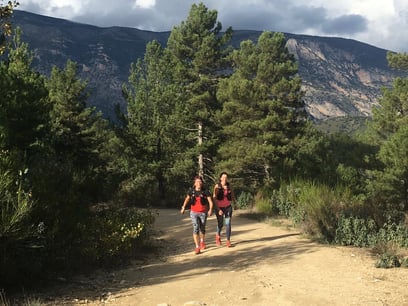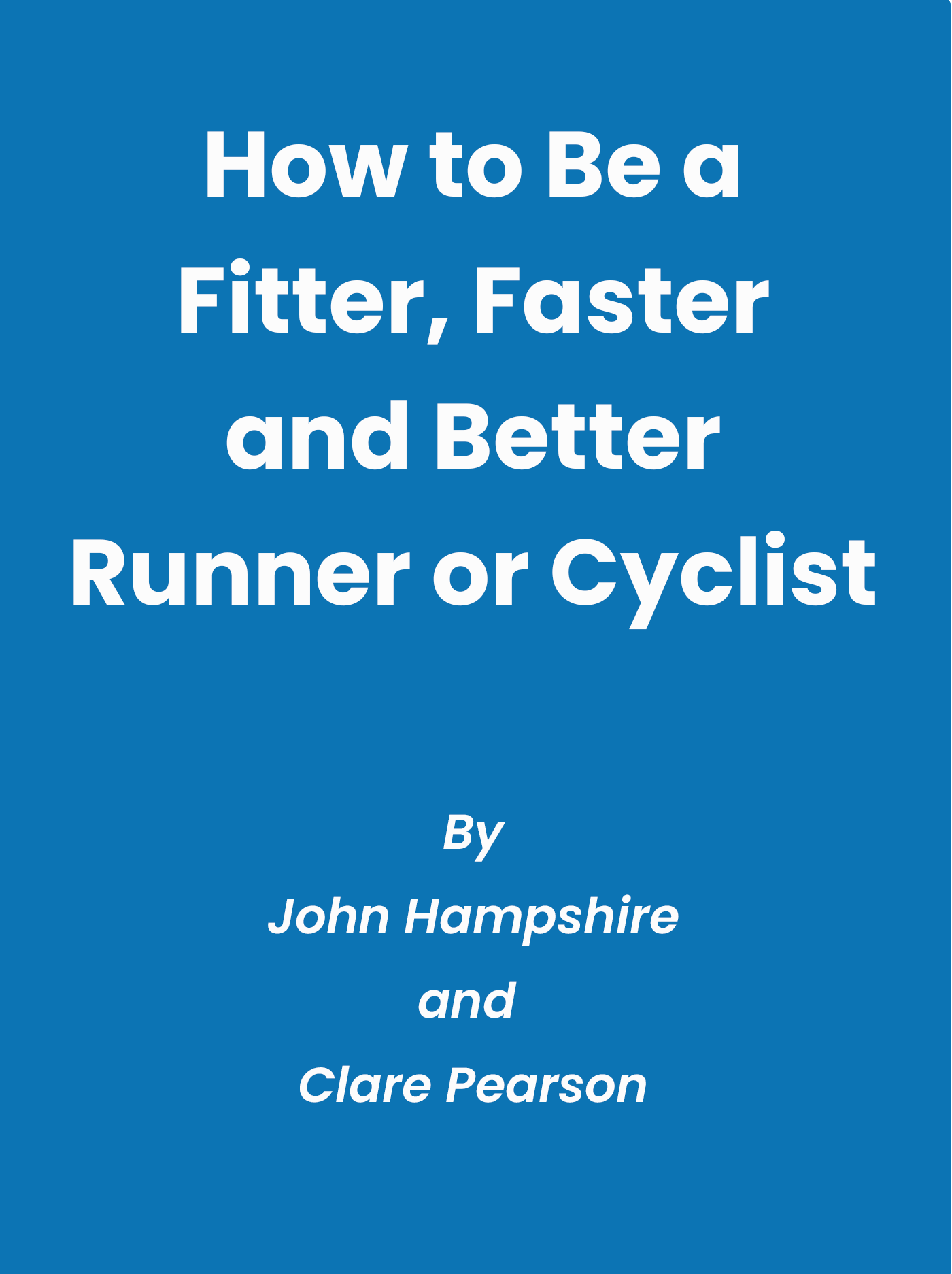15 Ways Endurance Sport Can Help Your Mental Health

There is increasing evidence to show that physical activity can have a positive effect on mental health. I recently read an article which stated how doctors in some countries are prescribing exercise for patients with low mood and depression. Throughout my career I have worked with a variety of people who have used physical activity to improve their mental well-being. So, how does this relate to endurance sport in particular? And when does ‘physical activity’ become ‘sport’? I’ve been reflecting a lot recently about how my own running career has helped me maintain better mental health.
1) Endurance Sport Reduces Stress

When we do any amount of focussed physical activity we are necessarily taking time out from our task-based lives. Time out is and always has been a prescribed way to manage stress (ancient near eastern traditions which prescribed one day of rest per week did so with good reason).
As part of my former career I would regularly visit clients in prison; this is perhaps one of the most stressful environments you may ever have the misfortune of finding yourself in; it’s with good reason that most modern prisons offer regular access to exercise yards and gyms, which can be a real life saver (literally not metaphorically) for some inmates.
When we cross over from regular physical exercise to endurance sport, we are required to spend a lot of time doing something we like in order to compete/complete our goal race. In our daily lives we are surrounded by stressors (advertising, e-mails, social media, to do lists, work). To be able to strip all these things away and just focus on the repetitive action of running/cycling provides relief for the mind. During a long ride/run there will be moments where we can switch off and intuitively move forward, there will be others (a tricky descent perhaps, a particularly hard session ) where we have to be completely focussed on the task at hand.

In her book ‘Joining the Dots’ Lee Craigie talks about the therapeutic nature of her Highland 550 ride in 2016; the notion that all she had to do was eat, sleep and pedal opened up a whole world outside of the daily hum drum and often stressful nature of modern life. Whilst we aren’t all going to go and race the Highland 550, even a small amount of time doing our sport can have positive effects; it’s often during my lunch run that I suddenly know how to deal with a particularly difficult work problem.
2) Endurance Sport Lifts your Mood
When we engage in physical activity our body produces endorphins; this hormone reduces your perception of pain and is a naturally occurring opiate that lifts our mood. This is why many people will say that although they struggle to get out for that run/ride, afterwards they feel great. For people who suffer with low mood, regular exercise can be a good way to help manage this by using the body’s natural response to physical activity to improve your mood.
Once you have a specific goal in mind in endurance sport the way to achieve it is by regular training. The key to success in sport is regular doses of that sport. This is great for mental health as it’s like a regular dose of anti-depressant/anxiety medication without all the horrible side effects. One of the positive side effects is that it can act as a sedative. Healthy sleeping patterns and enough sleep are both key ways to maintain a positive mood and combat depression and key symptoms of depressive illnesses.
Focus on a goal event provides us with the impetus to get out and train, even when perhaps we are feeling down/less energetic. When we begin training seriously for any endurance sport, we have to get out, even when we sometimes don’t feel like it. This can be a good skill to fall back on/practise when our mental health affects our motivation; in sport we practise the skill of self-motivation several times a week, both in getting out the door and in pushing ourselves through those hard sessions.
3) Gives you Time in Nature.

Recent studies are showing that time in ‘green spaces’ helps reduce stress and increase happiness. If you live and work in a city you may go for days or even weeks at a time without accessing green spaces. If training forms part of your daily routine however, you have a very good excuse to run/cycle to the park and do a few laps and it’s far easier to train for a long event on quiet country paths/roads at the weekend than by weaving in and out of city streets. I can think of many work related events in inner cities where I have kept my sanity by a run on the canal/in the local park each the morning.
My own personal experience is that I need green spaces. I was chatting with a friend recently about this and we were both trying to explain that feeling we get when we have been out in the countryside for a while and suddenly we relax. It’s as though a switch flicks and suddenly we find ourselves again.
4) Increases Your Self-Esteem

A sense of ‘Excellence in Work and Play’ was one of the many core ‘goods’ that Tony Ward identified in his Good Lives Model as critical to living a fulfilled life. The concept of having an area of your life where you can set your own goals and achieve them is a great way to increase your self-esteem. The beauty of edurance sport is it’s a very personal achievement: it’s about your race and your results. I have run with and worked with runners and watched how they have progressed from very little belief in their own abilities to finishing their first run, then their first race and the change in their self-belief is remarkable.
The beauty of endurance sport is that you can set your own goals, make them achievable and then set about the process steps to achieving them. You don’t have to be an olympic champion; if you can set realistic acceptance criteria that are not simply pass or fail this will help maintain your sense of success. In endurance sport, it’s not just about winning, it can be about completing, it can be about getting a good time at a set distance. Coaches will often discuss ‘acceptance criteria’ and a ‘stretch target’ with athletes so that there is a band of success rather than a simple ‘pass/fail scenario.’
5) Provides a Healthy Focus
Often when we are suffering from poor mental health we can become focussed on the wrong things (our lack of achievement, eating, drinking, weight). Engaging in sport and wanting to achieve a good level within that chosen sport can help people refocus on more healthy aspects of life.
More recently there have been athletes who have come forward and disclosed how they have started to have an unhealthy relationship with food and weight loss in a quest to perform better. Whilst I would never advise someone continues running/exercising with an eating disorder, part of recovery for people I have known and read about has been about refocussing on how to maintain a healthy body and weight for good performance.
6) Can Help you Abstain from Addictive Substances.
The endorphins mentioned earlier in this article are classed as an opiate, so in effect by engaging in sport you are replacing unhealthy opiates with a healthy (non-addictive) opiate.
The difficulty with giving up an addictive behaviour/substance is that that substance/behaviour is often meeting a core need (self-soothing, escape from distress). Once we attempt to give up the substance we are left with the enormity of the feelings and/or difficulties we were masking. Whilst continuing to escape from life’s problems is not the answer, having something which provides a healthier way to cope with them can form part of a healthy mental wellness package.
I have worked with many people who have had all kinds of difficulties which have led them to focus on unhealthy ways to escape their problems. Taking up and practising sport has helped them refocus on healthy goals. My own personal journey into running started because I wanted to give up smoking and being the perfectionist I am I soon discovered I could not perform well as a runner whilst I was smoking. Whilst I enjoyed the ‘buzz’ from smoking I enjoyed the ‘buzz’ from running more.
7) Can Provide a Social Network

Having a social network is an important part of mental well-being. Humans are social beings and we feel calmer and at ease when we feel part of a group (or “Troop” as Prof. Steve Peters calls it in The Chimp Paradox).
One of the things I love about running is that wherever you go, there is generally a running club nearby; it’s like a ready made circle of friends because you know immediately you are going to have at least one thing in common with them. When I first left univerisity I felt very lonely as I had moved to a new town where I didn’t know anyone, people at work were a bit older and more focussed on their families so I had no social network. Joining the running club enabled me to have social contacts outside work during training sessions and I made some good friends through this. I have been known to run with clubs when I’m away for a conference/training out of area, and recently when I moved to France and joined the local running club I immediately met two other people from my village with the same interest.
Joining a club to practise endurance sport can also help if you are a particularly shy person, because doing a sport together doesn’t require you to talk much (and you can always use the excuse that you are saving your breath!).
8) Promotes a Better Work Life Balance
A common theme in working with people who have become overwhelmed by life’s problems is that they have worked too much and left no room for other things in their life. This can lead to them neglecting other important areas of their life including their physical and mental well-being.
Once you have determined that you want to do your sport and to keep doing it you are then forced to fit this into your day; this requires you to make time! For me, running and cycling have been great ways to make sure that I leave my desk, whether that’s for a lunch time run or in good time to get home before I lose daylight, this has been a major contribution to me maintaining a good work/life balance.
To go back to the section on focus, having a focus outside work enables you to put work into perspective and realise that there are other things that you can focus on outside work. Whether you love or hate your job, having time away with other goals to achieve enables you to put less pressure on yourself in the work environment.
9) Sets a Good Example to your Children
Right from the moment of conception our own mental wellness has a massive impact on your children’s environment, from the hormones they are subjected to in the womb, to the environment they live in as they grow up. Maintaining your mental health maintains the mental health of your children.
I have worked with a few people who often struggle with the concept of performing to a high level in sport and the time this can take. In particular, for parents with busy lives, it can feel hard to justify hours on the bike/running on Saturday/Sunday/evenings which could be spent with theirchildren. Whilst this is a difficult balance to make, what is clear is that children will take on board far more readily what you do than what you say…so if you want your children to be healthy leading a healthy lifestyle yourself is the best way to promote this. If your children see you modelling commitment to work and to your hobby they are seeing the possibility of becoming a well-rounded individual and you as that well-rounded individual can spend quality, relaxed time with your children in a better mood.
10) Helps Maintain a Healthy Body
It is well-documented how illness can have a negative effect on our mental health. Keeping a healthy body promotes a healthy mind because we feel good physically.
Humans are not designed to be sedentary; we have two legs which are designed to move us around. In todays world, more and more of us are engaging in careers and home lives which involve very little movement. If we don’t move, we don’t burn calories, so it becomes increasingly difficult to eat a healthy diet (see next point) and maintain a healthy weight. Being over or under weight are both linked to depression.
In addition long hours seated at computers and desks create all kinds of physical problems from tight hamstrings, bad backs, sore necks and general stiffness. Having structured time each day for purposeful movement is a good way to ensure that we are remaining active, helping maintain a healthy body with good movement.
11) Promotes Healthy eating
Not only the amount of what we eat but what we eat has a massive impact on our mood and the way our brain functions. From omega 3, to selenium, tryptophan and free radicals, healthy amounts of all major micro-nutrients are shown to have a positive effect on our mood and brain function.
If you want to perform well at any sport you need to be healthy; being healthy isn’t just about output or what we make our bodies do to get fitter, but what we put in to help them perform maximally. In his book, Fuelling the Cycling Revolution, Nigel Slater refers to food as ‘fuel,’ viewing food in this way rather than as a comfort/something to be overly restricted promotes a healthier relationship with food. When we look at what we eat as a way of enabling our bodies to perform, a healthy balanced diet is the key.
This is not to say, if you have deep seated psychological issues around food that if you take up sport they will disappear and I would always advise anyone in this position to seek professional help. However, once you have crossed into the line of being committed to your sport, you do have your own best argument for healthy eating because you simply won’t perform at your best if you engage in unhealthy eating practices. This includes eating the right amount of macro and micro nutrients.
12) Provides Structure to your Day
One of the many difficulties for people suffering from depressive illnesses is a lack of routine and impetus to get out and do things. Being engaged in sport and going out regularly to train provides a good structure to your day; if you are too ill to work, this can be a good way to get you out of the house. By its nature training is rhythmic and regular, if getting up and going for a ride/run is part of your established routine it is far easier to do, even on days when you don’t feel so emotionally well. Training has a knock on effect: once you have been out to train, you get back in and shower so you have now achieved more self-care in addition to some exercise!
13) Therapy through sport

The nature of running and cycling with others means that we are in the most non-threatening position possible for a good conversation. Being at the side of someone and being involved in another task are both good ways to promote openess and disclosure. In developing women’s groups as part of improvements for services for women within the probation service, one of the things we were keen to do was to provide a day which involved some non-threatening activity. Whilst focussed on their task and standing by your side, many women would open up in a way that was impossible during an office visit sat facing you across the desk.
Whilst we might not all need or want therapy, having friends we can run beside and open up to/listen to can be a valuable part of our own mental wellness.
14) Improves your Problem Solving Skills
In the mid 1990’s a psychologist called James McGuire became well-known in criminal justice circles for writing a programme for offenders based on problem solving skills. His theory was that people fall into crime because they either aren’t very good at solving problems or solve them in an anti-social way. Conversely, people who were successful in life (relatively speaking) tended to be good at solving life’s problems.
Engaging in an endurance event and succeeding at it requires you to tackle a problem and solve it in a very goal focussed way (exactly the way McGuire prescribed). As with sport, McGuire specified that your goal was SMART (specific, measurable, achievable, responsive and time bound). When you prepare for a specific event you make a plan with process goals and you adapt that plan to obstacles that might get in the way (injury, illness etc). You might do some research into different training plans to follow and ask for help and guidance from friends or even a paid coach. You learn to manage your emotions in a way to optimise your performance on race day. In short, engaging in endurance sport means that you are practising problem solving skills that will help you be better at life.
At its higher levels, race tactics can teach us a little about the psychology of others (e.g. in a mountain bike cross country race surging up a particular hill enables you to gather information about the form of other riders, but may also enable you to break their will to stay with you thus giving you the key advantage on the final lap.
During longer events (ultras/marathons/adventure events) this problem solving skill is intrinsic to success. Not only do we need to prepare for possible problems, we need to be ready to face and deal with unexpected ones. Being able to adapt and react are key life skills that help us build resilience…
15) Promotes Resilience
I recently went to see a physiotherapist who pointed out that endurance athletes are far more resilient to pain than athletes from team events. Whilst being resistant to pain isn’t always the best way to deal with an injury, it is true that in order to make gains in endurance sport you do need to undergo a certain amount of discomfort. Running or cycling as hard as you can for twenty minutes, forty minutes, three hours, all day or longer requires you to push your body. Pushing your body in this way in training and in racing not only makes you stronger physically but also mentally because you push yourself to keep going even when your body would really like to stop and rest. This is an important life skill; by its very nature life is messy and difficult at times, having the mental resilience to deal with life’s problems means that we are less likely to break when crises happen.
September 1, 2019

Comments